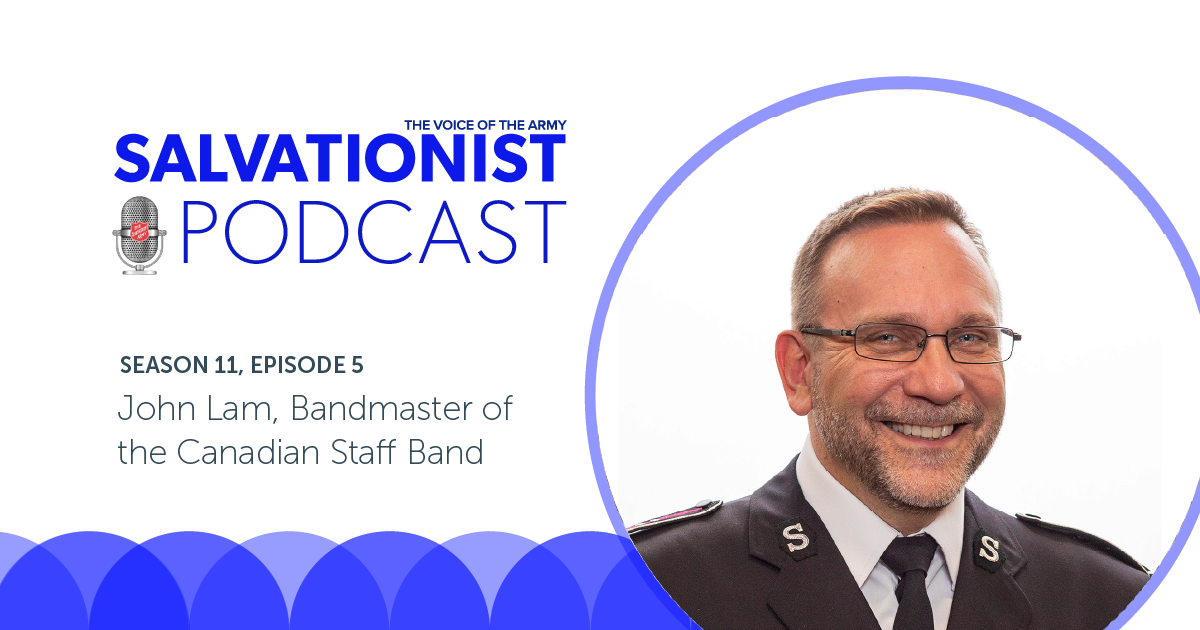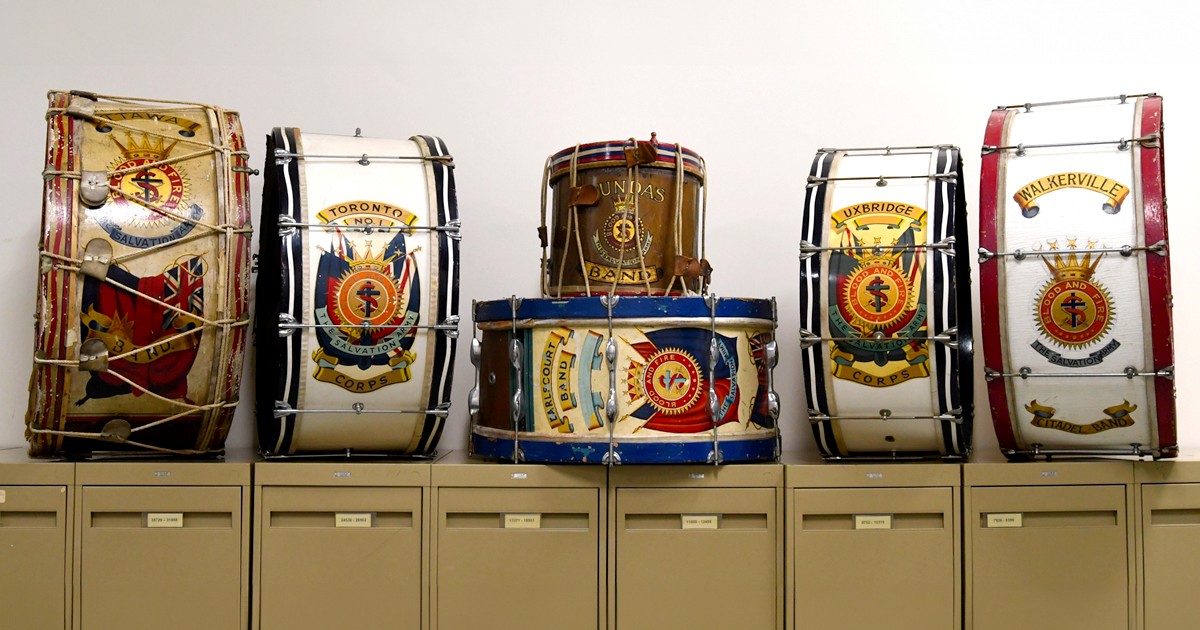Endings make a difference. The ending of a Beethoven symphony
impacts the way we hear the whole symphony. The ending of a hockey season with the Stanley Cup causes a team to re-evaluate the practices, disappointments and small victories along the way. The Salvation Army's 11th doctrine is about history's ending: We believe in the immortality of the soul; in the resurrection of the body; in the general judgment at the end of the world; in the eternal happiness of the righteous; and in the endless punishment of the wicked. This ending makes a difference because it shapes what we do now.
The 11th core conviction of the Army is hopeful because it expresses the conviction that there is a purposeful ending to history. It doesn't get bogged down in predicting when and how. It
does, however, sketch out elements of an ending that reflect God's character. Its contours are shaped with phrases such as “immortality of the soul” because there is life beyond death. It anticipates the “resurrection of the body” because the Resurrection of Christ is the basis of its hope. It speaks of a “general judgment at the end of the world” because God is not indifferent to the trauma of rape or the Holocaust. It articulates an “endless punishment of the wicked” because God's love is not coercive and respects human choices. It also portrays “the eternal happiness of the righteous” because the time will come when “righteousness is at home” (2 Peter 3:13 NRSV). The character of the ending reflects the character of God. And this ending is hopeful.
Because the doctrine is hopeful, Salvationists practise hope in the present. For instance, we signal hope when we invite vulnerable kids to a camp where they are respected with dignity. We express hope when we conduct a chapel service for long-term care residents who understand little of what's going on. Salvationists from Vancouver practised hope when they went to Zimbabwe to support orphans and vulnerable children. Their efforts have come to be called the Silokwethemba Project, which means “we have hope” (Salvationist, March 2015). Salvationists anticipate that time when God's sovereign rule will be fully realized. And we embrace that ending to make a difference in what we do now.
One of the New Testament's visions for God's future involves the “healing of the nations” (Revelation 22:2 NRSV). In the late summer of 1939, Adolf Hitler met with his generals. He anticipated the brutalities that lay ahead. So that there would be no misgivings, Hitler told them: “You can't wage war with Salvation Army methods.” Tragically the world came to understand what he meant.
In June 2011, some of these same nations that had engaged in war flew their flags together in London, England. It was the occasion of the International Staff Band's 120th anniversary. General Linda Bond (Rtd) took the salute as Salvation Army bands from New York, Chicago, Japan, Germany, Canada, Australia and Amsterdam marched with the International Staff Band. Here was God's future being made real in the present, the healing of the nations.
In a few weeks' time, Salvationists from around the world will gather at the Boundless Congress in London, England, to celebrate the Army's 150th anniversary. They speak different languages and cheer for different teams in the World Cup. They dress differently and dance to different music. Those who will gather in London know that they live in a world of huge injustices, but in this moment they will celebrate God's salvation and express the hope that is ours for the healing of nations. This ending makes a difference now.
Because we ground our faith in the risen Christ, we practise hope. Because we believe God will bring his good work to completion, we practise hope. Because we look forward to the city whose architect and builder is God, we practise hope. Because we look forward to the reconciliation of all things, we practise hope. Because God's future will vindicate God's character, we practise hope by embodying God's character in our personal and communal lives.
Major Ray Harris is a retired Salvation Army officer who lives in Winnipeg. He applauds prairie farmers as they plant their crops in hope of the harvest.
Convictions Matter, Major Ray Harris' book, is available at
store.salvationarmy.ca. For the e-book, visit amazon.ca.
impacts the way we hear the whole symphony. The ending of a hockey season with the Stanley Cup causes a team to re-evaluate the practices, disappointments and small victories along the way. The Salvation Army's 11th doctrine is about history's ending: We believe in the immortality of the soul; in the resurrection of the body; in the general judgment at the end of the world; in the eternal happiness of the righteous; and in the endless punishment of the wicked. This ending makes a difference because it shapes what we do now.
The 11th core conviction of the Army is hopeful because it expresses the conviction that there is a purposeful ending to history. It doesn't get bogged down in predicting when and how. It
does, however, sketch out elements of an ending that reflect God's character. Its contours are shaped with phrases such as “immortality of the soul” because there is life beyond death. It anticipates the “resurrection of the body” because the Resurrection of Christ is the basis of its hope. It speaks of a “general judgment at the end of the world” because God is not indifferent to the trauma of rape or the Holocaust. It articulates an “endless punishment of the wicked” because God's love is not coercive and respects human choices. It also portrays “the eternal happiness of the righteous” because the time will come when “righteousness is at home” (2 Peter 3:13 NRSV). The character of the ending reflects the character of God. And this ending is hopeful.
Because the doctrine is hopeful, Salvationists practise hope in the present. For instance, we signal hope when we invite vulnerable kids to a camp where they are respected with dignity. We express hope when we conduct a chapel service for long-term care residents who understand little of what's going on. Salvationists from Vancouver practised hope when they went to Zimbabwe to support orphans and vulnerable children. Their efforts have come to be called the Silokwethemba Project, which means “we have hope” (Salvationist, March 2015). Salvationists anticipate that time when God's sovereign rule will be fully realized. And we embrace that ending to make a difference in what we do now.
One of the New Testament's visions for God's future involves the “healing of the nations” (Revelation 22:2 NRSV). In the late summer of 1939, Adolf Hitler met with his generals. He anticipated the brutalities that lay ahead. So that there would be no misgivings, Hitler told them: “You can't wage war with Salvation Army methods.” Tragically the world came to understand what he meant.
In June 2011, some of these same nations that had engaged in war flew their flags together in London, England. It was the occasion of the International Staff Band's 120th anniversary. General Linda Bond (Rtd) took the salute as Salvation Army bands from New York, Chicago, Japan, Germany, Canada, Australia and Amsterdam marched with the International Staff Band. Here was God's future being made real in the present, the healing of the nations.
In a few weeks' time, Salvationists from around the world will gather at the Boundless Congress in London, England, to celebrate the Army's 150th anniversary. They speak different languages and cheer for different teams in the World Cup. They dress differently and dance to different music. Those who will gather in London know that they live in a world of huge injustices, but in this moment they will celebrate God's salvation and express the hope that is ours for the healing of nations. This ending makes a difference now.
Because we ground our faith in the risen Christ, we practise hope. Because we believe God will bring his good work to completion, we practise hope. Because we look forward to the city whose architect and builder is God, we practise hope. Because we look forward to the reconciliation of all things, we practise hope. Because God's future will vindicate God's character, we practise hope by embodying God's character in our personal and communal lives.
Major Ray Harris is a retired Salvation Army officer who lives in Winnipeg. He applauds prairie farmers as they plant their crops in hope of the harvest.
Convictions Matter, Major Ray Harris' book, is available at
store.salvationarmy.ca. For the e-book, visit amazon.ca.










Leave a Comment